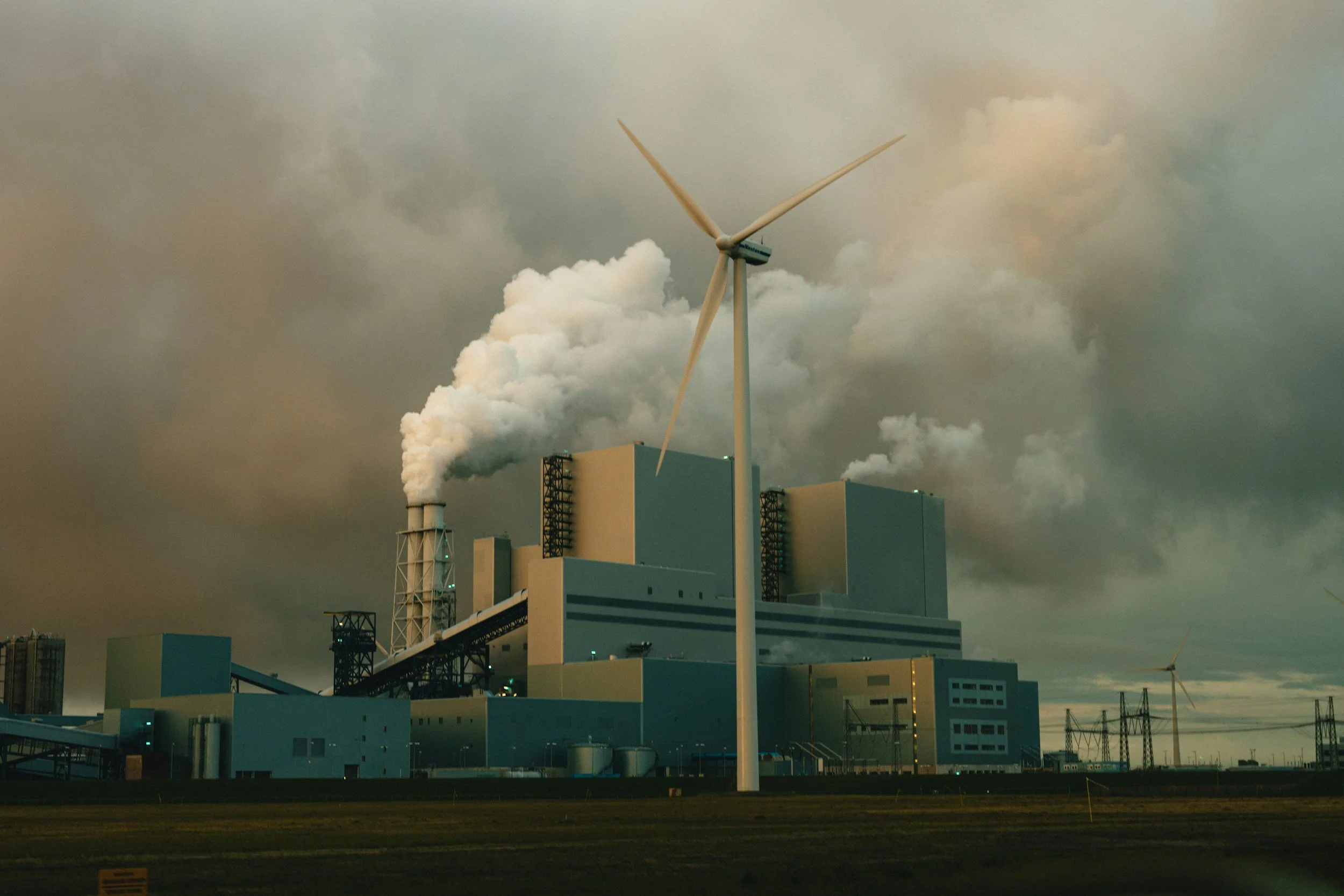How Sustainable Environmental Practices Create Better Industrial Zones
/The industrial sector has long been recognized as one of the most significant contributors to climate change, along with transportation, agriculture, and electricity and heat production. In 2010, the United Nations’ Intergovernmental Panel on Climate Change (IPCC) found that the global greenhouse gas emissions contributed by the sector accounted for 24% of the total global carbon footprint. Since the spotlight often falls on the other sectors when sustainability is discussed, it’s time to shed some light on sustainable and eco-conscious practices within the industrial sector.
As much as the industry’s carbon footprint casts a shadow over environmental sustainability, it also presents a unique opportunity for transformation. Industrial zones in developing countries have the potential to pivot toward a more sustainable and responsible path. By addressing the pressing environmental challenges and embracing sustainable practices, the industrial sector can reduce its ecological impact and pave the way for a more promising future for both businesses and the planet.
Let’s discover the different ways in which sustainable environmental initiatives can create better industrial zones around the world.
More Efficient Use and Management of Resources
Industrial zones that prioritize sustainability are better equipped to optimize their resource consumption. This optimization often results in reduced operational costs—a crucial advantage in today's competitive business environment.
Sustainable environmental practices can create better industrial zones by reducing pollution and minimizing the negative impact on the surrounding ecosystem. There are numerous ways for industrial zones to implement more sustainable practices and thereby become more environmentally friendly, including using renewable energy sources, reducing water consumption, and properly managing waste. industrial zones. These practices not only benefit the environment but also improve the overall well-being and health of the surrounding community. By prioritizing sustainability, industrial zones can also attract environmentally conscious businesses and investors, promoting economic growth and creating a better balance between industry and nature.
The benefits of adopting sustainable environmental practices are already being observed in such locations as the Philippines, where some contemporary industrial parks have already made headway in advancing sustainability efforts. Investments in infrastructure development in the Philippines’ economic parks, such as renewable energy and water treatment facilities, address pressing issues that are vital to maintaining sustainable industrial zones. With further adoption of technology to reduce energy consumption, minimize water usage, and limit waste generation, businesses can substantially cut their expenses. This efficient resource management not only bolsters the bottom line but also reduces the environmental footprint of businesses.
Better Regulatory Compliance
In today's regulatory landscape, businesses face increasing pressure to comply with environmental laws and regulations. Implementing sustainable practices and environmentally responsible measures are effective ways to achieve and maintain regulatory compliance.
Industrial zones that embrace sustainability are not only meeting current regulations but also future proofing their operations. As regulations evolve to address environmental challenges, sustainable industrial zones will be better prepared to adapt and comply. This long-term compliance strategy provides a stable foundation for growth and investment in the country.
Enhanced Worker Productivity
Another compelling benefit of sustainable industrial zones is the enhanced productivity of the workforce. When businesses invest in sustainability initiatives, employees often become more engaged and motivated.
Sustainability efforts, such as energy-efficient lighting, improved indoor air quality, and ergonomic workspaces, can lead to increased job satisfaction and overall well-being among workers. As a result, productivity and performance levels tend to rise, which benefits both employees and businesses.
Improved Safety and Better Risk Mitigation
Sustainable practices are inherently tied to workplace safety, as many eco-friendly initiatives prioritize risk mitigation. For instance, sustainable industrial zones often invest in state-of-the-art safety measures, emergency response systems, and disaster preparedness plans. Furthermore, the incorporation of sustainable practices promotes resilience in the face of unforeseen challenges.
Climate change-related risks, supply chain disruptions, and resource scarcity can all pose significant threats to businesses. That’s why sustainable industrial zones that focus on resource efficiency and risk mitigation are better equipped to weather these challenges and maintain business continuity.
Improved Business Image
Sustainable and eco-friendly initiatives are not just about meeting regulatory requirements. In fact, they are about building a positive public image. Businesses that demonstrate a commitment to sustainability are viewed more favorably by customers, investors, and partners. What’s more, environmentally aware consumers increasingly seek out eco-friendly products and services specifically. From a competitive standpoint, a positive business image can be a key differentiator.
Businesses that operate in sustainable industrial zones benefit from this enhanced image. They are more likely to attract socially conscious consumers and investors, and they are able to position themselves as responsible corporate citizens in the eyes of the public.
Ability to Attract Green Investments
Finally, sustainability can be a magnet for green investments. As global interest in environmentally responsible investments grows, industrial zones that prioritize sustainability become more appealing to investors looking to support green and ethical initiatives. The latest United Nations Conference on Trade and Development (UNCTAD) World Investment Report noted that the sustainable finance market grew by more than 10% to USD 5.8 trillion in 2022. These investments can bring in the capital needed for expansion, infrastructure development, and technology upgrades. Moreover, they contribute to the growth and development of industrial zones in many places around the world.
Sustainability is not just a global trend but a path toward a brighter, more prosperous future. In developing countries, especially, industrial zones that embrace sustainable practices can create better opportunities for business growth.
As business leaders and decision-makers evaluate their options for expansion, they should consider the numerous advantages that sustainable environmental practices bring to industrial zones. After all, the primary goal of a sustainable business is to attain growth without compromising the future.
The Keys to a Cleaner Future
Implementing sustainable environmental practices in industrial zones not only benefits the environment but also creates numerous advantages for businesses and communities. By focusing on reducing pollution, conserving resources, and promoting energy efficiency, companies can improve their reputation, attract more customers, and increase overall productivity. Additionally, sustainable practices contribute to the well-being of the surrounding communities by minimizing health risks and preserving natural resources. Adopting sustainable environmental practices is not only a responsibility but also a smart business decision that leads to the creation of better industrial zones for both present and future generations.
About the Author:
Monica Mendoza is a content writer and marketing professional. She spends a lot of time studying how technology continues to transform lifestyles and communities. Outside the office, she keeps herself busy by staying up-to-date with the latest fashion trends and reading about the newest gadgets out on the market.











































Sustainability is gradually gaining traction in commercial kitchens. Rising food costs, environmental concerns, and consumer demand for eco-friendly practices are pushing restaurants to rethink their operations.